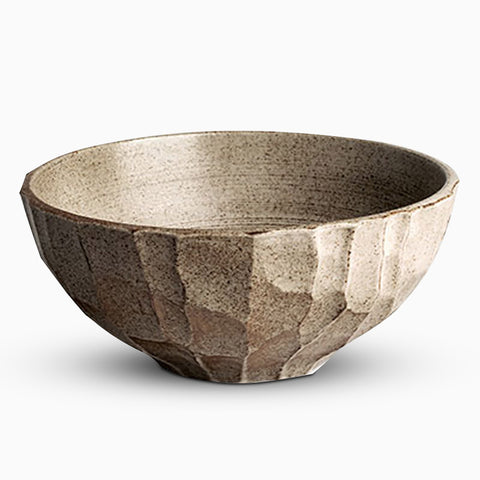Dinnerware is something that is overlooked in a home; however, it is a factor that can dramatically improve the way that you enjoy your favorite food with your loved ones. As well as give you another opportunity to influence your home's presentation. Stoneware is an ancient form of pottery that is generally made using clay, despite simple in its nature it has stood the test of time. In this article, we will tell you everything that you need to know about stoneware dinnerware.
The Difference Between Stoneware and Ceramic
In the modern-day and age, there are a number of diverse options available to a consumer when it comes to dinnerware. One of the most popular of which is ceramic, it is important to note that stoneware is a type of ceramic. However, the difference is that stoneware is heated on average at around 2,192 F (1,200 C). At the same time ceramic is heated at between 662 F (350 C) and 1,472 F (800 C). Furthermore, stoneware is much more non-porous meaning that it is less likely to add liquid or air to pass through it even in small amounts.
Clay Color Abstract Stoneware Dinnerware
The Difference Between Stoneware and Porcelain
To expand on this, a commonly cited option is porcelain, which is made using a clay material called kaolinite along with stone material. Porcelain is heated on average a few hundred degrees above the base heating temperature of stoneware dishes for example. Porcelain dinner sets can be much more transparent than stoneware dinner sets. However, stoneware dinnerware plates are much cheaper than their porcelain alternatives. As well as the fact that porcelain is much more prone to cracking on the edges and corners in comparison to its stoneware alternative.
The Difference Between Stoneware and Melamine
Finally, we are going to talk about melamine. To be totally transparent, melamine is the cheapest lowest quality option that can still be very useful but at the same time does not last as long. Melamine is primarily made using plastic polymers so you are not able to put it in an oven or microwave as it will melt. When it melts it can release harmful gases into the air and food that it is has inside at the time. None of these problems exist when using stoneware.
The Advantage of Stoneware Use in Everyday Life
- Easy Cleaning, you can clean your stoneware bowls with ease and without the worry that you will scratch them as this is a very strong material. Additionally, it is suitable for the dishwasher if you have one.
- Resilient, stoneware dinnerware sets are very durable, especially in comparison to the other types of ceramics that we have covered further above. In fact, if you look after your stoneware mugs properly, they can last for a lifetime making them a worthy investment.
- Great for Cooking, as we have already mentioned in this article, stoneware dinnerware is non-porous meaning that it doesn't allow any moisture to pass through it. This makes it great for steaming food in your oven.
- Temperature Shock Resistant, a big advantage of using stoneware plates is that they are very temperature shock resistant. Meaning that if you place very hot or cold food in them, they will not crack, unlike other ceramics.
- Safe to Use, finally it is important to note that stoneware is a safe option for cooking and serving food, which is always at the back of the mind of every parent. It will not release any toxins when in use, which cannot also be said about some of its alternatives such as melamine.
To conclude, stoneware dinnerware is a reliable option that can be used to keep your food warm and also serve it to your guests in a beautiful container. A great aspect of stoneware is that it is not the most expensive. More expensive options such as porcelain and bone china cost more but are much more prone to being damaged.
It is an established material that has been used for literally thousands of materials, and even in the modern world, it remains one of the most popular options. There are hundreds of different companies, so you can be sure to find the designs, shapes, and sizes that you will like and will suit your home's appearance.






